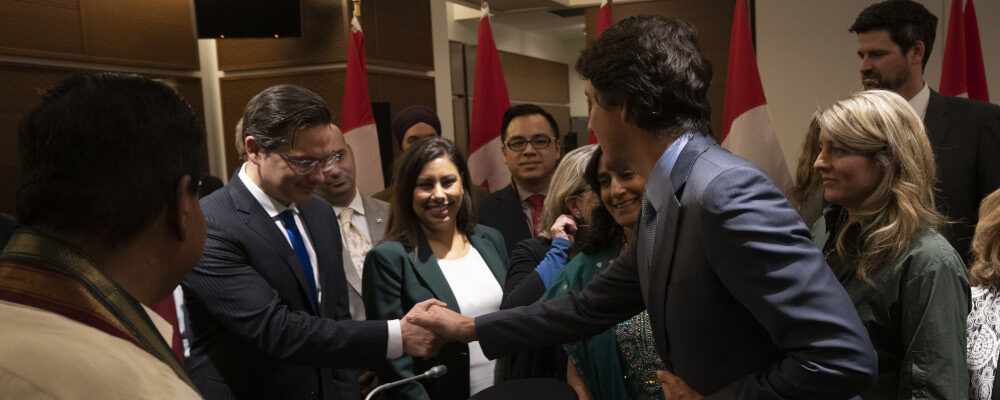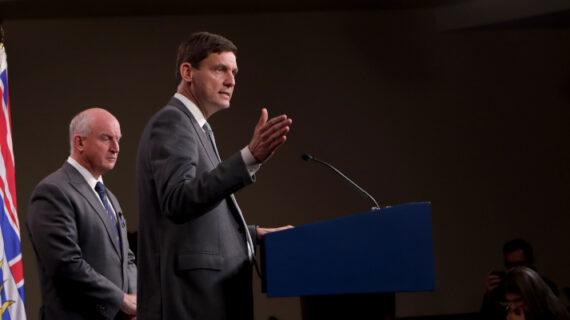Andrew Coyne was right to recently point out in the Globe and Mail that there’s a good chance the next federal election (whenever it comes) could result in an outcome in which no party holds a majority of seats in the House of Commons. The Conservative Party won the popular vote in the last two elections and recent polling puts it in a position to increase its seat count—including a possible plurality of total seats. Coyne also rightly points out that this result could lead to something of a constitutional (or at least political) crisis.
The likelihood of a crisis (or at least a period of tumult) seems to me further exacerbated by the resulting commentary around Coyne’s column. On the one hand, Liberal-friendly commentators will ardently side with Coyne’s conclusion that the current prime minister ought to use his incumbency to take the first shot at passing a throne speech and commanding the confidence of the House.
On the other hand, detractors will speak up with as much conviction that the party that wins the most seats should obviously have the opportunity to try to govern, based on common sense and perhaps even supported by convention.
The self-confidence of each side means both will not spend much time between now and the election making their arguments, nor will the Liberals or Conservatives who will speak only of their respective intentions to win. So, it’s worth thinking through the likely outcomes of the next election to understand how the battle could play out.
The odds of the NDP winning the most seats seem slim and odds of another Liberal majority seem low. The Tories will play for a majority and while it’s not out of the realm of possibility, particularly if they gain serious momentum during the writ period, the nature of Conservative support makes it tricky. The Conservative vote is notoriously inefficient (meaning it tends to be high in some regions and low in others, so increased popular vote doesn’t always drive up seat count) so the party may not be able to convert increased support into a clear majority of seats won.
If the Conservatives under-perform similar to the past two elections, we could see another status quo election. If so, no crisis. If the Conservatives really over-perform and pull off a majority, also no crisis. But what if they win the most seats and yet come up short of a majority? This is where things get interesting. Much of what happens on election night and in the following days would be dictated by how Justin Trudeau and the Liberals respond to the results.
Given the duration of the prime minister’s tenure and speculation about the end of his time as leader, it’s fair to assume that if the Liberal seat count dropped significantly and the Conservatives won a strong plurality, Trudeau would concede the election. This is not a certainty, mind you. There would no doubt be advisors telling him he had a constitutional case to make that if he could get the support of a majority of MPs, he could opt not to resign and instead try to pass a throne speech. But the Liberals are savvy enough to understand that a technical argument will not suffice.
To hold onto power, Trudeau would need to make a compelling case to the public, which in turn would need to broadly support a deviation from post-election custom. It wasn’t so long ago that the Liberals over-estimated the public’s comfort with a coalition government made up of parties that didn’t win the most seats. The 2008 play for power rallied Canadians around the Conservatives. They rejected the coalition in part because the Liberals would have had to rely on support from the separatist Bloc Quebecois, but equally because it just didn’t feel right.
But what if the seat count is close? What if the Conservatives win only 10 more seats than the Liberals? What if it’s only a plurality of two or three seats? Such a result would give those advising Trudeau to make a play to hold onto power a lot more ammunition.
Under this scenario, the Laurentian elite’s comment machine would fire up, producing countless op-eds rehashing Coyne’s argument that the prime minister can and should aim to hold onto power. Progressive labour unions, NGOs, and think tanks fearing a Conservative government would similarly make a public case for a left-wing policy agenda supported by a majority of Canadians. But Trudeau, Poilievre and their advisors would know that only one thing really matters: legitimacy. And each would try to make the case for it.
Trudeau’s camp would point to the relationship the Liberals have with the NDP and the recent history of finding common policy ground. This case would be made easier with significant election platform overlap (not at all hard to imagine), and a compliant NDP membership. The public narrative is predictable: “A majority of Canadians voted for progressive MPs. We can deliver them a progressive government.” The details are harder, but not unmanageable. Would the NDP demand a formal coalition and seats at the cabinet table? Existing relationships nurtured by the supply and confidence agreement would make these discussions easier and it would seem based on recent history that Singh’s NDP is comfortable as junior progressive partner.
All of this deliberation, though, would take place as the Conservatives talk to voters. And in Poilievre, they have a leader who is not interested in deference or subtly. Their argument would be far clearer and more compelling than their opponent’s: “We won.” And beyond the core narrative, the unspoken factors are also compelling. The Conservatives will have gained seats while the Liberals will have been losing them, consistently over multiple elections. The trend is in the Tories’ favour.
Conservatives have a recent history of winning a plurality of seats, governing successfully, and converting that result into a majority in the next election. It is harder to imagine Singh’s NDP behaving the way a more pragmatic Jack Layton’s NDP did, but the Bloc Quebecois has drifted further away from separatism in the intervening years, making them a more viable dance partner. And, under this scenario, the Liberals would be weakened, and increasingly divided with recently quieted prospective leadership candidates getting loud again, some of them likely prefer to let the Conservatives govern briefly while they embark on a leadership campaign and topple the government when they’re ready to fight anew.
Most importantly, the Conservatives will have on their side the most compelling argument of all: common sense. When it comes to Parliament and constitutionality, convention has a technical definition and some will argue that convention is on the Conservative’s side in that sense. It may well be so.
Even more importantly, the technical definition of convention is connected to how the word is understood more colloquially. And that everyday understanding of convention, of common custom and norms, is what’s most powerful of all. People understand intuitively that our democracy must be founded in a practical understanding of representation. They are rightfully skeptical of arguments that begin with “but, technically…,” and for good reason. For them, the party with the most seats wins.
Canadians would intuitively view any attempt by Trudeau to cling to power as, as Sean Speer put it on Twitter in response to Coyne’s column, a “coalition of election losers.” Coyne didn’t like the turn of phrase, but how else to understand the scenario?
If the Conservatives win the most seats in the next election it will feel to people like they deserve the chance to government, and people, especially lately, are inclined to trust their instincts. The Conservatives can prepare for this. Plan A is and should be to win a majority government. But Plan B, a strategy for throne speech support and a public argument for legitimacy, should be in the works. And if you ask me, the argument won’t be hard to make.




